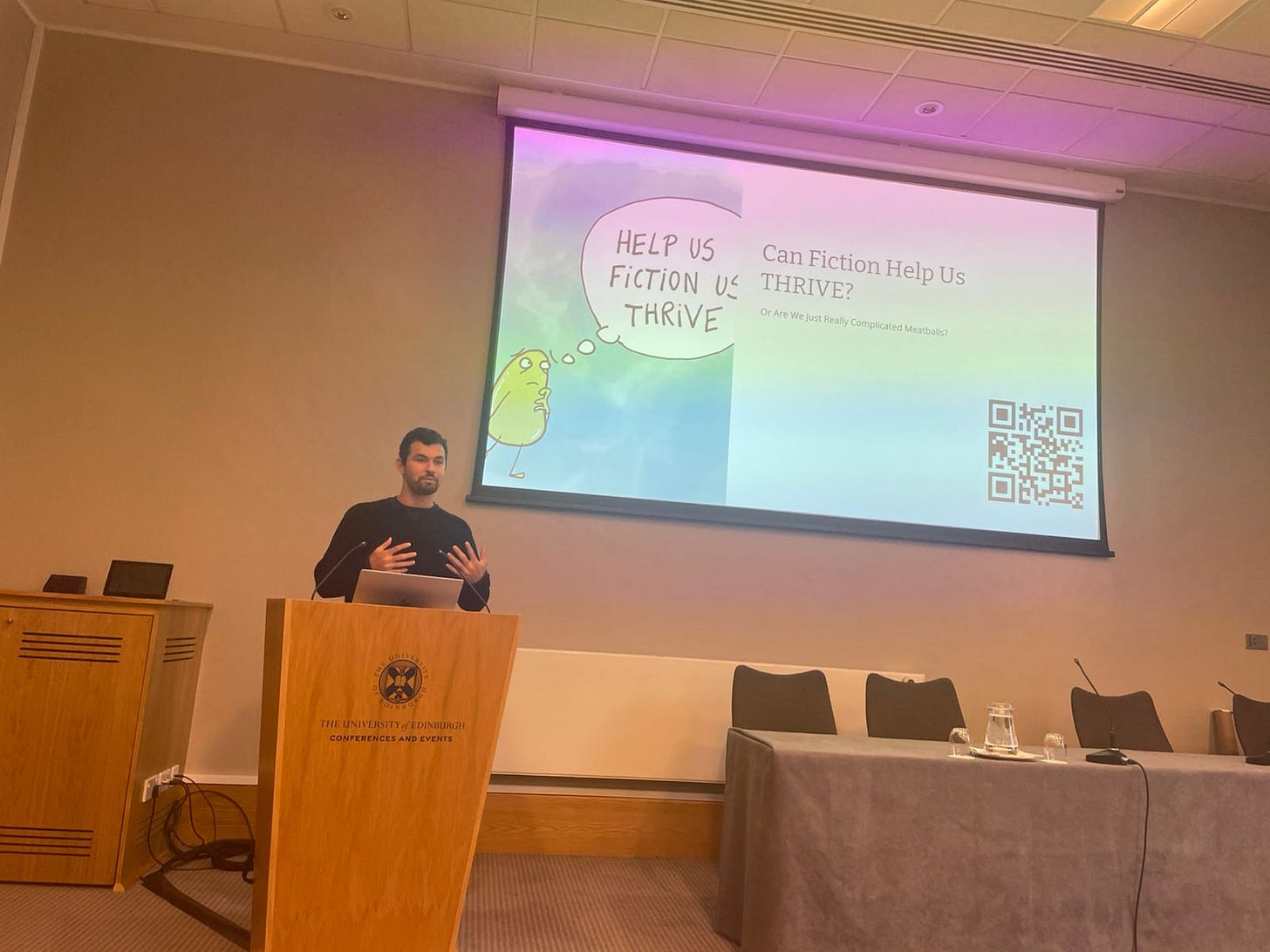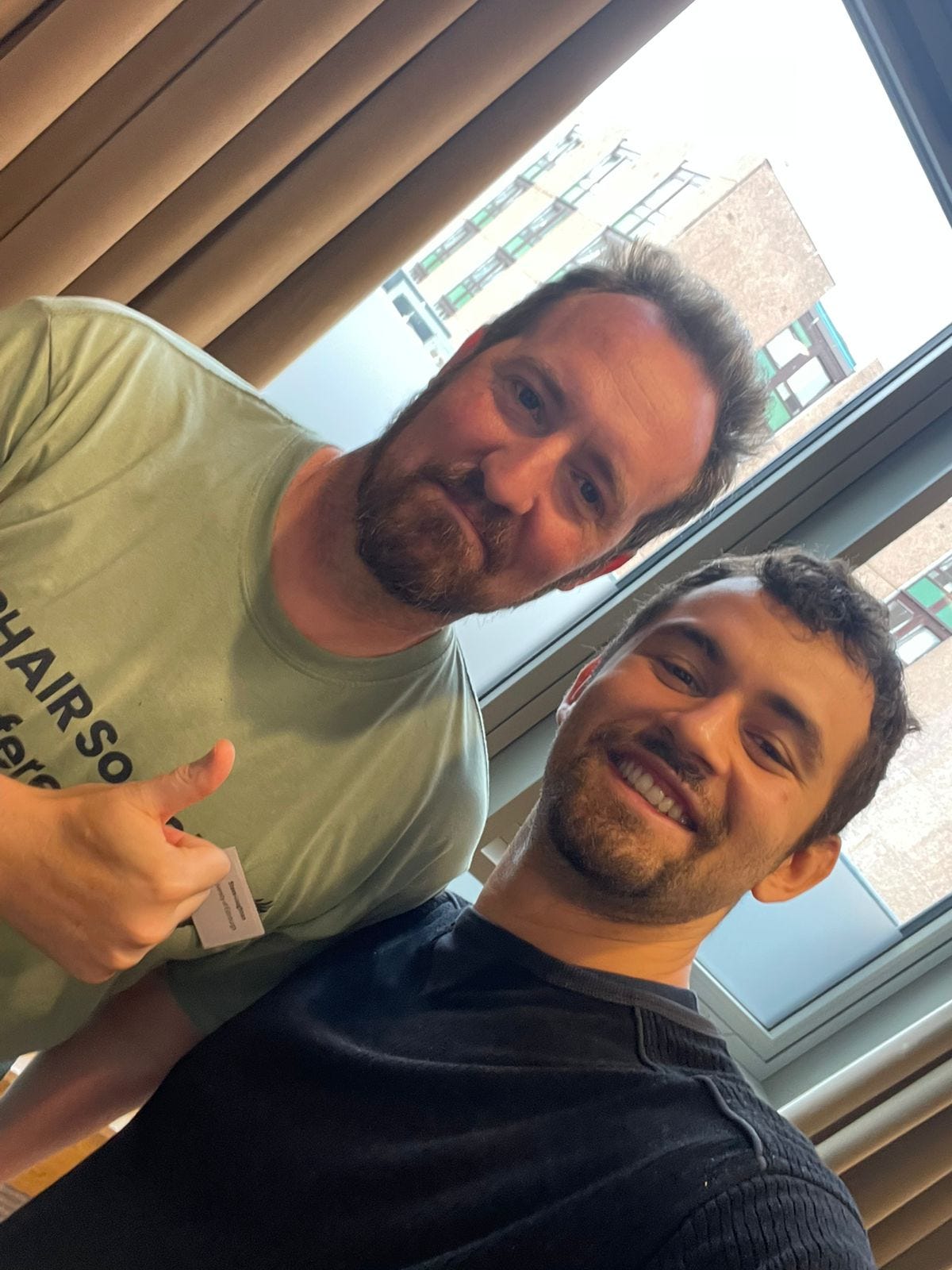Can Fiction Help Us Thrive took part in the PHAIR conference at the University of Edinburgh, an event conducted by the School of Psychology, where leading researchers presented work that is either nearing publication or already shaping its fields. Within that forum we pushed the conversation toward animal treatment, a subject many of us there agreed ranks among the gravest moral failures of our age.
Thinkers far more prominent than I am, including Martha Nussbaum and Peter Singer, have framed the issue in those terms. Standing among psychologists and ethicists I could feel the weight of that judgment and the unease that history may look back on our era with disbelief at how casually non human lives were converted into raw material.
The sessions made me reflect on two divergent futures. One path points to meaningful change, a society willing to reimagine coexistence. The other keeps animals forever sequestered at the edge of law as resources, objects to be traded and processed.
During a break I spoke with Christopher Berry from the Nonhuman Rights Project. As fellow lawyers we gravitate to similar arguments, and Christopher outlined the personhood strategy developed by Stephen Wise. The idea is to press common law courts to recognise great apes, dolphins, and elephants as legal persons on the basis of their demonstrated agency, memory, and emotional lives. What is a ¬Person¬ after all? Nobody really knows… And its considerations change within space and time.
It is an approach still outside the mainstream of advocacy yet it remains one of the most coherent legal routes, in my opinion, because it insists that rights follow from who these beings are rather than from their ecological utility. The challenge is explaining that stance to a public fluent in property terms but uneasy with expanding moral circles.
Scientific work on animal sentience continues to map cognition, emotion, and even elements of moral reasoning in species once dismissed as instinct driven. Anyone who has lived beside an animal already intuits what the data strains to prove. Suffering and pleasure are not mysteries, they are observable states that mirror our own. Yet the burden of empirical proof lingers, much as it would if we set out to measure another human’s inner life with laboratory instruments.
The same epistemic fog hovers in my novella, The Jacksons’ Debate, where a technologically superior species sizes up humanity for the dinner table. Fiction exposes the ease with which power reframes entitlement and forces us to examine the assumptions that protect us while condemning others.
The hope is that dialogues begun in Edinburgh will multiply. If you have research, creative work, or an idea that could advance the ethical standing of animals, reach out. Can Fiction Help Us Thrive is a platform for narratives, podcasts, music, whatever medium best tests new ways of thinking. Each contribution adds another lens through which society might recognise that non human life carries intrinsic claims that law and culture have yet to honour.
A final note from the margins of the conference: over one of the many breaks Connor Jackson recommended me Iain Banks’s Culture series. Banks imagines a civilisation that has moved beyond scarcity and no longer needs to grind other beings into resources, then forces that society to meet neighbours who still do, and I add it here because stories that imagine societies past scarcity can inform how we picture justice for every sentient being. Ill definitely get my hands on one of those books in the coming days, and perhaps will review it over here.
And, of course, a very special shout out to Billie Groom, who presented with me, was a part of the presentation, is a part of this page, with her podcast participation, and also now her participation in the conference. And to, of course,
, who is a supporter of this page, and a very enthusiastic reader of the work that is developed by us.And lastly I have to recognise and take the time to much appreciate our first donator for the page
who subscribed to our page after watching the presentation as a paid subscriber. That is so motivating, and I'm incredibly grateful for it!Amazing Job by the organizers, and I hope ill be there again in the next edition two years from this date. Matti Wilks, Steve Loughnan & Kristof Dhont.







